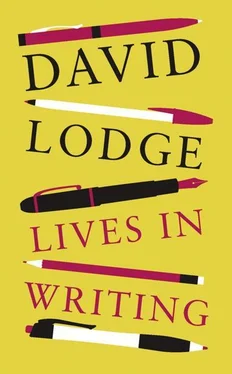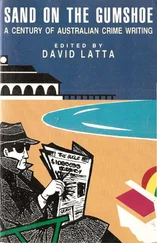The same, alas, cannot be said for his biographer. Sherry’s third volume is self-indulgently and often eccentrically written. The discourse is frequently broken up into short sections consisting of a paragraph or two, separated by asterisks, which disrupt the cohesion of the narrative and afford the biographer too much freedom for digression and superfluous comment. Mixed metaphors run amok (e.g., ‘When Greene writes a letter to the press, it’s a lightning rod for shoals of letters to be poured out in answer, swords drawn.’). Similes often baffle (e.g., ‘Had he failed this couple [the McDonnells], he’d have been as ashamed as a nudist caught with his clothes on.’). Sometimes, like Nabokov’s Kinbote in Pale Fire , Sherry addresses the startled reader directly: ‘Don’t you feel that at times, writing a novel was for him a disease?’ Towards the end of the book there are lurid disquisitions on the horror of death which seem to tell us more about the biographer than his subject. Either Sherry was poorly served by his editors or he ignored their advice. This is a great pity, because his dedication to his task is manifest, and the research that has gone into the book is awe-inspiring. With all its faults the completed biography is an indispensable companion to the work of a major modern writer, and a fascinating account of an extraordinary life.
1 The Life of Graham Greene, Volume One 1904–1939 (1989); Volume Two 1939–1955 (1994); Volume Three 1955–1991 (2004).
2 Yvonne Cloetta, In Search of a Beginning: My Life with Graham Greene , as told to Marie-Françoise Allain (2004); Shirley Hazzard, Greene on Capri: A Memoir (2000).
THE RISE AND FALL AND RISE AND FALL OF KINGSLEY AMIS
ZACHARY LEADER’S BIOGRAPHY of Kingsley Amis 1runs to more than 1,000 pages, including ninety-seven pages of notes, many of them substantial. Did its subject deserve this enormous biographical effort and corresponding demand on the reader’s time? Answers to that question would depend very much on the respondent’s age and nationality. For English readers and writers born in the 1930s (like myself) or a little before, Kingsley Amis was a key figure in post-war British culture, whose importance and influence cannot be measured simply by the intrinsic merit of his books. In America he acquired a small band of fans, mostly Anglophile academics, but the wider reading public never really embraced him with any warmth. Lucky Jim , a critically acclaimed bestseller in the UK, sold only 2,000 copies in the US in its first two years. According to Zachary Leader, it was not until Edmund Wilson reviewed Amis’s second novel, That Uncertain Feeling , in The New Yorker in 1956, comparing him to Evelyn Waugh, that he began to be taken seriously in America, and even so, Leader observes, ‘Amis never sold well there.’ Leader says nothing about translations and foreign sales of his work, but my impression is that Amis’s fiction, like warm English beer, is a taste that Continental Europe never acquired.
Why was this so? It was, I believe, because Amis’s distinctive and original attitudes to literary tradition, to class, to morals and manners, were mediated in a style, a tone of voice, the expressiveness of which was fully appreciated only within his own English speech community. With his friend Philip Larkin, of whom the same might be said, Amis led a consciously insular movement in English writing in the 1950s, sometimes unhelpfully called ‘the Movement’ and sometimes conflated with the more journalistic concept of the Angry Young Men. Amis publicly disowned these labels, but he was well aware of the new trend in English writing in the 1950s which they designated and his own crucial role in it. In aesthetic terms it was anti-modernist — a very different category from postmodernist — being conservative as regards literary form. Amis and his associates challenged the cultural prestige of high modernism (Joyce, Pound, Eliot, Woolf, et al. ) and deplored its continuing influence on English poetry and literary fiction. In their criticism and by example they opposed experimentalism, obscurity, exiguous plots, exotic settings, and borrowings from what Philip Larkin derisively called ‘the myth kitty’. They wrote about ordinary blokes (they themselves were mostly male) having ordinary experiences in ordinary places, like English provincial towns and redbrick universities. They voiced the feelings of a new generation of lower-middle-class youth pushed up the social ladder by free secondary and tertiary education in post-war Britain, who felt to some extent alienated from their roots but also resented and resisted the assumptions and prejudices of the established professional class into which they had been promoted. Lucky Jim struck a nerve in this generation, a nerve of delighted recognition and vicarious wish-fulfilment, but what made it stand out was Amis’s prose style, which may be represented by Jim Dixon’s famous reflection on the title of his scholarly article, ‘ The Economic Influence of the Developments in Shipbuilding Techniques, 1450 to 1485’ :
Dixon had read, or begun to read, dozens like it, but his own seemed worse than most in its air of being convinced of its own usefulness and significance. ‘In considering this strangely neglected topic,’ it began. This what neglected topic? This strangely what topic? This strangely neglected what?
John Lewis, the narrator of That Uncertain Feeling , describes returning home after an amorous extra-marital encounter in the same style:
Feeling a tremendous rakehell, and not liking myself much for it, and feeling rather a good chap for not liking myself much for it, and not liking myself at all for feeling rather a good chap, I got indoors, vigorously rubbing lipstick off my mouth with my handkerchief.
Essentially this is prose that puts truthfulness before elegance, especially ‘elegant variation’, but manages to achieve a kind of eloquence as well as humour with lexical and syntactical repetition that seems superficially clumsy. The aim is always to be honest, exact, and undeceived. It was a style that Amis had cultivated and honed in correspondence with Larkin long before either of them was published, and it helped a lot of other young British writers to find their own voices.
Amis’s place as leader and trend-setter did not last for much more than a decade. Society changed, literary fashion changed, and he changed. But he remained a significant figure in English letters, maintaining throughout his life a prolific output, not only of novels (twenty-five in all) but also numerous non-fiction books of various kinds, television screenplays, a vast amount of journalism, and a significant number of poems that have stood the test of time. He enjoyed his celebrity, and used his access to the media to comment on social and political issues of the day, as his views swung from left to right in the course of his life. That his son Martin achieved comparable fame and influence among his generation caused Amis père some irritation as well as pride, but helped to maintain his own prominent position in English cultural life. His personal life was also full of interest, with fascinating links to his work, and is well documented. In short, he fully deserved a major biography.
Amis’s own Memoirs , published in 1991, though entertaining and occasionally revealing, was not an autobiography but a collection of discontinuous reminiscences, character-sketches and reflections that gave away little about the writer’s private and emotional life. It was also, according to several disgruntled people described in its pages, factually unreliable. Not long afterwards Amis approved and to some extent assisted a biography of himself written by Eric Jacobs, a journalist and fellow habitué of the Garrick Club. Published in the spring of 1995, it revealed a very different person behind Amis’s bluff, blimpish and entertaining public mask: someone who for most of his life had been subject to anxiety, panic attacks, and various phobias, who would not fly, drive, or travel on the Underground, and was dependent on other people to manage the simplest tasks of life. It was an eye-opening book for those interested in the subject’s personal history, but under-researched and inadequate in its treatment of Amis the writer. When it was finished Jacobs obtained Kingsley’s agreement to record their conversations in the manner of a latter-day Boswell, with a view to eventual publication. There was also an informal understanding that Jacobs would in due course edit Amis’s letters.
Читать дальше












